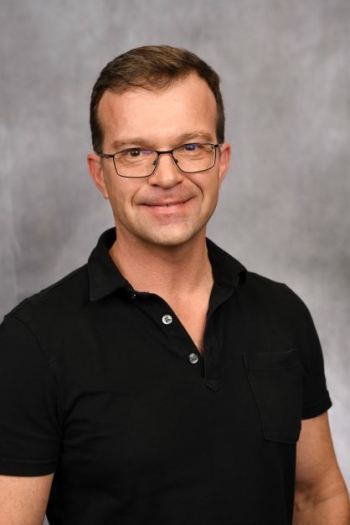
Curriculum Vitae
Cooperative Institute for Research in Environmental Sciences
University of Colorado, Boulder/NOAA Chemical Sciences Laboratory
325 Broadway, R/CSL4, Boulder CO 80305
Owen.R.Cooper@noaa.gov; Tel: 303/497-3599
CURRENT EMPLOYMENT
Research Physical Scientist, NOAA Chemical Sciences Laboratory, Boulder
EDUCATION
2001 Doctor of Philosophy, Department of Environmental Sciences, University of Virginia
1997 Master of Science, Department of Environmental Sciences, University of Virginia
1994 Bachelor of Science, Gillings School of Global Public Health, University of North Carolina, Chapel Hill
WORK EXPERIENCE
2016-2024 Senior Research Scientist, Cooperative Institute for Research in Environmental Sciences (CIRES)
University of Colorado/NOAA Chemical Sciences Laboratory, Boulder
2006-2016 Research Scientist III, Cooperative Institute for Research in Environmental Sciences (CIRES)
University of Colorado/NOAA Earth System Research Laboratory, Boulder
2003-2006 Research Scientist II, Cooperative Institute for Research in Environmental Sciences (CIRES)
University of Colorado/NOAA Earth System Research Laboratory, Boulder
2002-2003 Research Scientist I, Cooperative Institute for Research in Environmental Sciences (CIRES)
University of Colorado/NOAA Aeronomy Laboratory, Boulder, Colorado
2001-2002 National Research Council Associate at the NOAA Aeronomy Laboratory, Boulder, Colorado.
PEER-REVIEWED PUBLICATIONS
Owen Cooper has a total of 128 peer-reviewed publications (24 as first author), with an h-index of 63, as compiled by Web of Science. For a complete listing of his publications: ORC Publications PDF file
COMMITTEES AND CONTRIBUTIONS TO ASSESSMENT REPORTS
2023 – present Member of the IAGOS (In-Service Aircraft for a Global Observing System) Advisory Board
2022 – present Scientific Coordinator of the TOAR-II Community Special Issue
2022 – present Member of the International Global Atmospheric Chemistry (IGAC) Project Scientific Steering Committee
2021 – present Chairperson of the World Meteorological Organization (WMO) Global Atmosphere Watch (GAW) Scientific Advisory Group (SAG) on Reactive Gases
2020 – present Member of the WMO GAW Expert Team on the Atmospheric Composition Network Evolution
2020 – 2023 Stakeholder Committee Member of Metrology for climate relevant VOCs (MetClimVOC), an activity of The European Association of National Metrology Institutes (EURAMET)
2020 – 2022 co-Chair of Phase-II of the Tropospheric Ozone Assessment Report (TOAR-II), an official Activity of IGAC.
2019 – present Core Member of the World Meteorological Organization (WMO) Global Atmosphere Watch (GAW) Scientific Advisory Group (SAG) on Reactive Gases
2018 – 2021 Contributing author on global tropospheric O3 observations for Chapter 2 (Changing state of the climate system) and Chapter 6 (Short-lived climate forcers) of the Working Group I contribution to the IPCC Sixth Assessment Report (AR6)
2018 – present Member of the Atmospheric Science Data Center (ASDC) Distributed Active Archive Center (DAAC) User Working Group, located at NASA Langley Research Center (NASA LaRC)
2014 – 2019 Chair of Phase-I of the Tropospheric Ozone Assessment Report (TOAR), an official Activity of IGAC
2012 – 2013Contributing author on global tropospheric O3 trends for the Working Group I contribution to the IPCC Fifth Assessment Report, Climate Change 2013: The Physical Science Basis (AR5)
2012 – 2024 Contributing author on global tropospheric O3 trends and distribution in the annual State of the Climate reports, published in the Bulletin of the American Meteorological Society
2006 – present Member of the Task Force on Hemispheric Transport of Air Pollution (TF HTAP), established by the Executive Body of the UNECE (United Nations Economic Commission for Europe) Convention on Long-Range Transboundary Air Pollution; TF HTAP produces assessment reports on the hemispheric transport of air pollutants
PRESENTATIONS
Owen Cooper has been invited to present his research at many scientific meetings and universities around the world. For a list of his presentations: ORC Presentations PDF file
PARTICIPATION IN FIELD EXPERIMENTS
2014 The Front Range Air Pollution and Photochemistry Experiment (FRAPPÉ), Colorado
2012 Deep Convective Clouds and Chemistry (DC3) Experiment, Salina, Kansas
2010 IONS 2010 Ozonesonde Experiment during CALNEX, California
2008 Aerosol, Radiation, and Cloud Processes affecting Arctic Climate (ARCPAC), Fairbanks, Alaska
2006 Texas Air Quality Study / Gulf of Mexico Atmospheric Composition and Climate Study (TexAQS/GoMACCS)
2006 IONS - Measurement of Ozone across mid-Latitude North America (MONA)
2004 International Consortium for Atmospheric Research on Transport and Transformation
2004 NOAA Aeronomy Laboratory's Sub-tropical Jet Study 2004
2003 Convective Transport of Trace Gases into the Upper Troposphere over Europe: Budget and Impact on Chemistry (CONTRACE)
2002 Intercontinental Transport and Chemical Transformation (ITCT), Monterey, California
2001 Convective Transport of Trace Gases into the Upper Troposphere over Europe: Budget and Impact on Chemistry (CONTRACE), Freising, Germany
2000 Program for Research on Oxidants: Photochemistry, Emissions and Transport (PROPHET), U. Michigan Biological Station, Pellston
2000 Total Ozone Production about the Spring Equinox (TOPSE), Boulder, Colorado
1998 Program for Research on Oxidants: Photochemistry, Emissions and Transport (PROPHET), U. Michigan Biological Station, Pellston
1997 North Atlantic Regional Experiment (NARE), Sable Island, Nova Scotia
1996 Atmosphere/Ocean Chemistry Experiment (AEROCE), Charlottesville, VA
AWARDS
2020 CIRES Outstanding Performance Award, for initiating IGAC’s Tropospheric Ozone Assessment Report
2015 The 2014 Editors' Citation for Excellence in Refereeing for JGR-Atmospheres
2007 NOAA OAR (Office of Atmospheric Research) Outstanding Scientific Paper Award
2007 The 2006 Editors' Citation for Excellence in Refereeing for JGR-Atmospheres
2001 Maury Environmental Sciences Prize, Department of Environmental Sciences, University of Virginia
2001 Outstanding Student Paper Award, Spring Meeting, American Geophysical Union, Boston